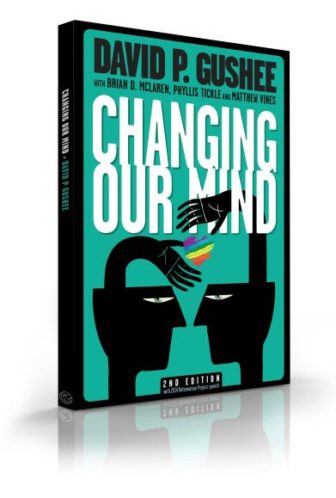(RNS) A few weeks ago I was disinvited again.
To be disinvited is (or ought to be) a rather rare privilege. It happens when first you are eagerly invited to do something, like give a speech or write a book chapter. You say yes. You hold the date on the calendar, do some preparation, decline other invitations.
Then, some time later the invitation is suddenly withdrawn. The event will go on, but it turns out that you are no longer welcome. Something has shifted about you, or about whoever invited you, and now your presence is a problem.
To not be invited somewhere in the first place, that’s no problem. No one has a right to a speaking or writing invitation.
To be invited and then disinvited by the same group, that’s special.
This particular disinvitation was not the first I have received. But it was one of the most surprising.
Here’s the backstory:
From 1994 to 2014, I was one of the go-to ethicists in the evangelical Christian world. If there was a statement to sign (or write), I was usually invited. If there was a major conference on ethics, I was often featured. If there was a book project, I might well be asked to participate. It was a good run.

“Changing Our Mind” by David Gushee
But then I made a mistake, at least from one perspective. In October 2014, I wrote a book called “Changing Our Mind.” In it, I gingerly explored the possibility that LGBT people should no longer be treated differently from others in the church. They should be welcome on equal terms, not more, not less. I tried to show it might be possible to get to this conclusion without compromising core Christian moral commitments.
From a certain liberal perspective the book was too little, too late. After all, it was 2014. But from a certain evangelical perspective the book was too much, too soon. I had crossed a bright red line that separates evangelical Christians from others of lesser orthodoxy.
The hailstorm of rejection I received after publishing that book will be described more fully in my memoir, which Westminster John Knox Press will be publishing this fall. It will be called “Still Christian,” a claim about myself that my fundamentalist and evangelical Christian enemies might well reject.
In it, I will describe what my life was like from 2014 to 2016. It included a bunch of disinvitations (and worse). Numerous events that were on the calendar were blown right off.
By fall 2016, I had imagined that the wall of rejections, attacks, criticisms, and exclusions had finally come to an end. While I came to understand that there was not a chance in any universe that I would ever again be invited to perform any kind of service for any evangelical body, I had thought the time of disinvitations was finally over.
But there was one last chance to make me pay for my sins.
I was scheduled to speak this coming April to the Protestant Church-Owned Publishers Association. This is a trade group of about three dozen Protestant denominational book publishers. In 2016, their representative invited me to be the keynote speaker at their annual trade meeting in Nashville, Tenn. I put the date on my calendar.
But then the other shoe dropped.
I received a note about a month ago from the same person who had invited me. I was now being disinvited to this event. The reason? One of the publishers from a conservative denomination had threatened to resign from the organization if I was allowed to speak to it.
This publisher also suggested that other conservative publishers might join them in walking away if I gave a speech. They wouldn’t just boycott that meeting; they would take their ball and go home. Forever. And ever. Amen.
This was apparently too much pressure for the organization to bear, and so they folded like a tent. I was disinvited.
Later I learned two of the more progressive publishers resigned in protest over the disinvitation to me.
So there you have it. The possibility of my presence at a podium for an after-dinner talk is now enough to cause an entire organization to split.
This was not how I thought my story would ever go. Not when I committed my life to Christ 40 years ago. Not when I was ordained 30 years ago. Not when I got my doctorate almost 25 years ago. Not when I wrote my book — one of over 20 on a wide variety of topics.
Any lessons here?
We live in a society in which our polarities drive each other crazy. I walk into a house with a certain TV station on and I want to howl in anguish.
Why can’t we all just get along?
Because we are convinced that so much is at stake, that the other is not just wrong but dangerous, that being subjected to the sound of their voice is intolerable.
When this happens to you personally, it gets really, really old.
When it happens to a society, it gets really, really dangerous.
(David Gushee is Distinguished University Professor of Christian Ethics and director of the Center for Theology and Public Life at Mercer University in Georgia. He writes the “Christians, Conflict and Change” column for RNS)





